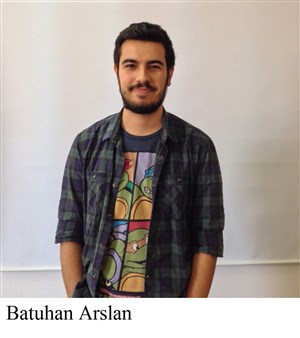What were the main reasons that encouraged you to choose the Netherlands and Maastricht?
I was leaning toward a country with a high standard of living, so the Netherlands was an appropriate choice for me. One of the reasons why I chose Maastricht from among other universities in the Netherlands was the location of the city. It is a small city that borders both Belgium and Germany, which indeed made it easy for me to travel. Other reasons, of course, were the quality of education at Maastricht and my desire to experience a different education system. The university ranks among the top 200 in the world according to Times Higher Education, and the system there is considerably different from that at Bilkent.
How was life in the Netherlands in terms of its cultural and social aspects?
The country is well known for its almost unlimited freedom, and I saw that it really is like that. Also, people showed me great hospitality, which helped me not to experience an adjustment problem. Communication was really easy, since quite literally almost everybody in the Netherlands—even the homeless—speaks English. Thus, I did not experience any cultural problems. In addition, the ESN (Erasmus Student Network) team arranged frequent activities.
What is the average monthly cost of living in Maastricht for a student?
Actually, it depends on the lifestyle, but on the average the cost is around 800-900 euros a month. Accommodation ranges between 350 and 500 euros. Of course, the more you eat out, the greater the cost. I would recommend that you cook at home or eat in the dorm. In short, the grant amount may be enough to cover everything other than accommodation.
Was it easy to find accommodation? Does the school offer dormitories?
It was really easy. When I was accepted by the university, the school sent me a website link, “Maastricht Housing.” On this website, you can find different accommodation options: the school’s own dormitories, private student dormitories and also houses for rent. I chose to stay in a private student dormitory, which was less expensive and better than the school dormitories.
How were the courses, projects and exams at Maastricht compared to those at Bilkent?
Education at Maastricht is a bit different. Instead of a lecture-based system, they use a problem-based learning system. In general, rather than being taught by the teachers, students teach each other. First, you read a short paragraph about the topic for the week, discuss it with other students and prepare questions about it. After the first class, you answer the questions and read additional articles for the next class, where you then discuss the subject further with your fellow students. In terms of presentations, I did only one, and it was about my final paper. The courses are not harder than those at Bilkent, but the program is much more intense. I read approximately 100 pages’ worth of articles a week, but maybe that was because of my major. At Maastricht I studied more than I do at Bilkent.
What is the language of instruction? Is it easy to find courses in English?
Though the language of instruction is in most cases Dutch, Maastricht is well prepared for exchange students in this respect. They offer international students a number of programs to choose from, which are all in English. For example, all of the courses I took were in English.
Does the school offer a language course for international students to teach them the local language?
Maastricht does not offer any Dutch courses for credit, but there is a paid Dutch program before the term starts.
What was the most memorable thing about your Erasmus experience?
My trips to other countries were pretty memorable, but I think the single most memorable thing for me was when a friend and I intruded into a funeral service at a church in Bruges, Belgium. Everyone in the church was looking at us, but we couldn’t go out once we were in because the service had already begun.
What was the biggest challenge you had to deal with during your Erasmus exchange?
I cannot mention a specific challenge; however, I think everyone who participates in Erasmus mentions the same challenge, which is living in a foreign country for five months. Staying that far away from friends and family is really difficult. Overall, the adjustment process may be hard, but the Dutch people are very friendly.
What special tips can you offer prospective Erasmus students who might choose Maastricht?
• Study regularly, because you are expected to read the required articles, which are over 100 pages for every lecture.
• Do not expect to get off easy in your classes. They will not let you off easy just because you are an Erasmus student.
• Take courses relevant to your major, which will be helpful in preparing you for your chosen profession.
• Pack old stuff to take with you and use there, and then get rid of those things before you return to Turkey.
• Stay in the dormitory for a better social life, although sometimes parties may disturb you when you want to study.
• Go in the spring semester in order not to have an adjustment problem when you come back.
If you were given another chance for an Erasmus exchange, would you take it? Would you choose Maastricht again?
Absolutely, I would go again, because Erasmus improves your outlook. Living here, we have the idea that Europe is a utopia. However, when you go there, you realize that people there are not so different from us. Would I choose Maastricht again? Most probably, I would consider other options, but if I went again to Maastricht, which was my first choice, I would not feel unhappy.
Interviewers: Eda Ertan (MAN/II)
Cansu Ateş (MAN/II)
Halenur Öztekin (MAN/II)

